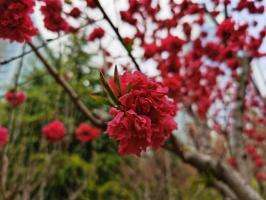Does Soap Water Harm Plants?
When it comes to plant care, we all know that water and sunlight are essential for them to grow and thrive. However, some people believe that using soap water as a pesticide or insecticide can help control certain pests and diseases. But, does soap water harm plants?
The Science Behind Soap Water
Soap is made by mixing fats or oils with an alkaline solution. The mixture creates a sort of chemical reaction that results in soap. When you add soap to water, it reduces the surface tension of the liquid, which helps it penetrate and break down dirt, grime, and other particles. This same process is what makes soap water an effective pesticide, as it can break down the outer layer of insects and control their movement.
Soap Water vs. Plants
While soap water is effective against certain pests, it can be harmful to plants. Excess use of soap water can damage and dry out the leaves and stems of plants. The soap can also act as a surfactant, which makes the water stick to the leaves and not evaporate, leading to waterlogging and root rot.
When to Use Soap Water on Plants
If you must use soap water on your plants, it's best to use it sparingly and only as a last resort. Dilute the soap in water in a ratio of 1-2 teaspoons per gallon of water. Also, ensure that the soap doesn't contain any additives like fragrance or dyes that may harm the plants even further. It's also important to use it only on plants that don't have a waxy coating, as the soap can dissolve it and cause damage.
Alternatives to Soap Water
If you want to control pests and diseases naturally without harming your plants, there are several alternatives to soap water. These include using neem oil, introducing ladybugs or other beneficial insects, and using garlic or chili pepper sprays. You can also try physically removing the pests by hand or using sticky traps.
The Bottom Line
While soap water can be an effective pesticide against certain pests, it's important to use it sparingly and with caution. The best way to protect your plants is by regular maintenance, preventing pests and diseases in the first place, and using natural alternatives when necessary. Remember, healthy plants are the best defense against pests and diseases.

 how many times do yo...
how many times do yo... how many planted tre...
how many planted tre... how many pine trees ...
how many pine trees ... how many pecan trees...
how many pecan trees... how many plants comp...
how many plants comp... how many plants can ...
how many plants can ... how many plants and ...
how many plants and ... how many pepper plan...
how many pepper plan...






























